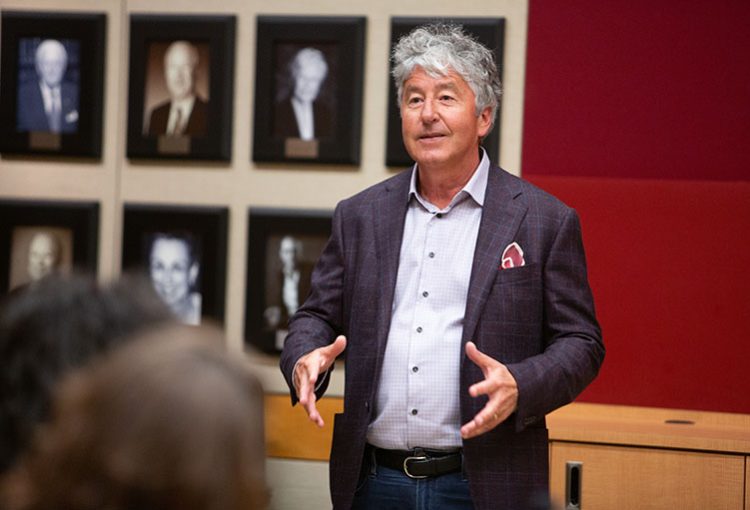Salk Institute to Study How Cancer Cell Plasticity Impacts Therapeutic Resistance
The Salk Institute of Biological Studies and its European teammates will soon compete in a Cancer Grand Challenge to study cancer cell plasticity, the process where cancer cells change and adapt to their environment. The study seeks to help researchers understand what makes cancer cells resistant to chemotherapy and radiation so they can determine how to counter this resistance.
Cancer Grand Challenges supports a global community of diverse, world-class research teams that come together to tackle some of cancer’s toughest challenges. Cancer cell plasticity is among this year’s nine areas of focus.
In normal, healthy cells, tightly controlled plasticity allows a cell to maintain functional stability despite changes in environment. These environmental changes may result from damage or infection, or during tissue repair after injury. However, in cancer cells, promiscuous plasticity can promote tumor evolution and resistance to various therapies. It can also lead to dormancy, an untreatable state from which future disease relapses can arise. Hence, understanding plasticity – how and why it arises and how to prevent it – is key to increasing the success rates of current cancer treatments.
The OPTIMAL team, led by Ron Evans Ph.D., has evidence that cancer is a hacked and uncontrolled version of the process of wound healing.
When wounds heal, the regenerative process of repairing tissues runs amok, driven by mutations. This explains many of the aggressive features of cancers, including their plasticity, their disruptive impact on normal tissues and their resistance to therapy. By dissecting and analyzing complex signaling networks, the team seeks to understand how mutations in oncogenes and tumor suppressors disrupt these networks. In doing so, the team will identify the mechanisms that regulate plasticity and determine how to turn it off, thereby overcoming therapeutic resistance.
The team plans to use an organoid bank to test the hypothesis that cancer cells remodel their own local tissue microenvironment to adapt and become more plastic. Organoids are miniature cancer organ cultures that recreate the process by which tumors develop and retain defining cancer features over time.
Obesity, insulin resistance and inflammation are all examples of disturbances in systemic homeostasis. Systemic homeostasis is a physiological process that keeps the internal environment of a living organism stable. These disturbances can promote plasticity within cancer cells and impact therapeutic responses. Obese patients, for example, may have higher resistance to radiotherapy, chemotherapy and alterations in stem cell function.
Obesity is a major driver of insulin resistance, and systemic metabolic changes caused by insulin resistance may influence tumor progression and aggressiveness. Obesity also causes chronic systemic inflammation, which influences tumor growth and therapeutic responses. However, how changes in systemic homeostasis influence cancer cell plasticity remains unclear.
During the Grand Cancer Challenge, OPTIMAL team members will assess how cancer cells overcome plasticity-enabled therapeutic resistance and metastatic progression. The team’s end goal is to identify interventions capable of curtailing plastic cell states to improve therapeutic outcomes, block metastasis, and, ultimately, prevent cancer recurrence in patients.
Read More About The December’s Cancer Grand Challenge

